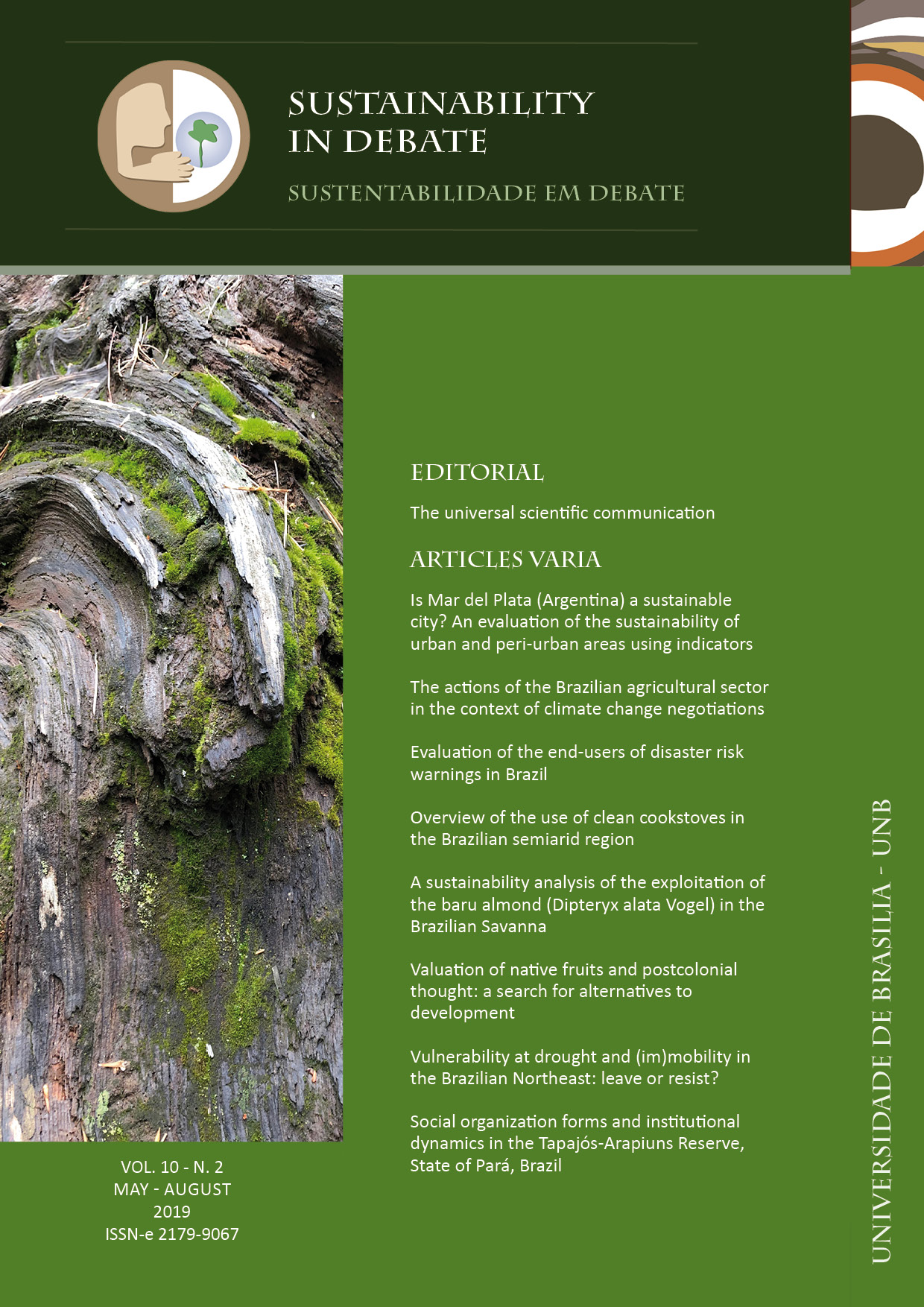Vulnerabilidade à seca e (i)mobilidade no Nordeste brasileiro: partir ou resistir?
DOI:
https://doi.org/10.18472/SustDeb.v10n2.2019.19806Keywords:
Secas; Mobilidade; Mudanças Ambientais; Riscos; Semiárido do Nordeste Brasileiro.Abstract
Based on a survey with 1,064 households in the Seridó Potiguar, in the Brazilian northeastern Semiarid region, this paper discusses how individuals adjust mobility responses when they perceive the impacts of droughts on their livelihoods. Our results show that short-term responses are more common with daily or seasonal mobility in relation to permanent residence change. We also observe a greater female participation in these types of mobility, probably due to its shorter distance. Cash transfer programs show great relevance in this process, supporting families without emigrants or subsidizing the emigration of at least one resident. Finally, we conclude that migration and/or labor supply in urban areas have been important strategies for families to deal with the risk, which requires strong institutions to manage the potential negative impacts on the destination regions of these individuals.
Downloads
Downloads
Published
How to Cite
Issue
Section
License
Copyright (c) 2019 Sustentabilidade em Debate

This work is licensed under a Creative Commons Attribution-NonCommercial-NoDerivatives 4.0 International License.
SUSTAINABILITY IN DEBATE – Copyright Statement
The submission of original scientific work(s) by the authors, as the copyright holders of the text(s) sent to the journal, under the terms of Law 9.610/98, implies in the concession of copyrights of printed and/or digital publication to the Sustainability in Debate Journal of the article(s) approved for publication purposes, in a single issue of the journal. Furthermore, approved scientific work(s) will be released without any charge, or any kind of copyright reimbursement, through the journal’s website, for reading, printing and/or downloading of the text file, from the date of acceptance for publication purposes. Therefore, the authors, when submitting the article (s) to the journal, and gratuitous assignment of copyrights related to the submitted scientific work, are fully aware that they will not be remunerated for the publication of the article(s) in the journal.
The Sustainability in Debate Journal is licensed under Creative Commons License – Non-Commercial-No-Derivation Attribution (Derivative Work Ban) 3.0 Brazil, aiming at dissemination of scientific knowledge, as indicated on the journal's website, which allows the text to be shared, and be recognized in regards to its authorship and original publication in this journal.
Authors are allowed to sign additional contracts separately, for non-exclusive distribution of the works published in the Sustainability in Debate Journal (for example, in a book chapter), provided that it is expressed the texts were originally published in this journal. Authors are allowed and encouraged to publish and distribute their text online, following publication in Sustainability in Debate (e.g. in institutional repositories or their personal pages). The authors expressly agree to the terms of this Copyright Statement, which will be applied following the submission and publishing by this journal.








